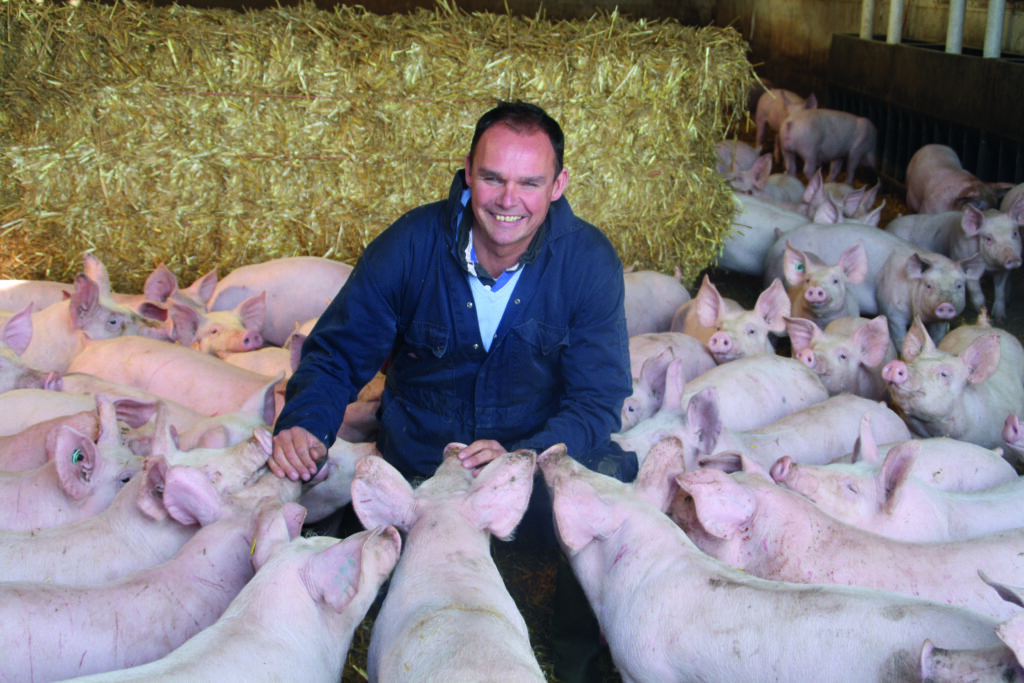The National Pig Association (NPA) is using its General Election manifesto to call for a fair and balanced deal for British pig farmers from the next Government.
The association, which represents about 80% of British pig production, has identified five priority areas for the main political parties in its 2017 General Election Manifesto, ahead of the June 8 poll. These are:
Post-Brexit trade: Trade arrangements that recognise our world-leading standards and enable the UK pig industry to thrive in the global marketplace. We must not agree to deals that open us up to unfair competition and we must fight for equivalent standards.
Labour: A balanced immigration policy that ensures we retain access to EU labour. We need a secure workforce and staff that are welcome to live in the UK.
Support: A domestic agricultural policy that supports our high standards and helps us to invest in modern production facilities that deliver good animal health and welfare.
Regulation: A fair regulatory system that ensures our needs as a valuable sector producing an iconic, high quality product are fairly balanced alongside other interests.
Pig health and welfare: The same resource and effort must be put into keeping animal disease out as extending export markets, as ultimately the two are intrinsically linked.
When it comes to post-Brexit trade, the NPA is highlighting the importance to the pig sector of maintaining tariff free access to the Single Market but also of ensuring that, if EU tariffs are imposed, that EU imports coming the other way are subject to equivalent tariffs.
Global welfare standards
The association has also issued a warning about the potential implications for animal health and welfare of new free trade deals outside the EU. It recently published details of research it has carried out comparing animal welfare standards across key pig producing countries.
For example, while sow stalls have been outlawed in the UK since 1999 and are now partially banned across the rest of the EU, they are still legal in the US, Canada and Brazil. These three countries also have very different attitudes when it comes to antibiotic use, while the feed additive, Ractopamine, banned in the EU, is still approved in all three.
The UK is also unique among major pig producing countries, including its EU competitors, in its variety of production methods, including outdoor breeding and indoor straw-based systems.
NPA chief executive Zoe Davies said: “The British pig industry has absolutely no intention of lowering our welfare standards as a result of any post-Brexit trade deals.
“Our manifesto is all about delivering a fair and balanced deal for our members and that includes ensuring British pig producers are not undercut by imports of pork from countries produced to lower welfare standards. We must insist on equivalent standards for imports and, if necessary, designate pork as a ‘sensitive product during free trade negotiations.
“We are also sending out a clear message to the next Government about the need to maintain easy access to EU labour, particularly permanent, so-called ‘un-skilled’ labour that our farms and the allied industries are so dependent on.”
Other priorities
Other NPA election manifesto priorities include:
- Grant funding under a new domestic agricultural policy or tax support to help investment in modern production facilities that deliver good animal health and welfare and allow farmers to reduce antibiotic use
- Champion the exceptional standards of Assured British pig farmers by ensuring Government departments always procure pork products to equivalent UK standards
- Legislation and regulation must be evidence- and outcome-based
- Better border controls and stricter penalties for those caught illegally importing meat.
The NPA’s manifesto is being sent to members for them to pass on to candidates, along with a poster that gives candidates an opportunity to show, via a ‘selfie’, their support for a ‘Fair Deal for the British Pig Industry’.
NPA chairman Richard Lister said: “We are now urging our members to help drive these messages home to prospective candidates, whether that is on the doorstep, out and about in their constituencies or via arranged meetings.
“If we all work together, we can really make a difference. We are not asking for special favours – all we want is a fair deal.”




